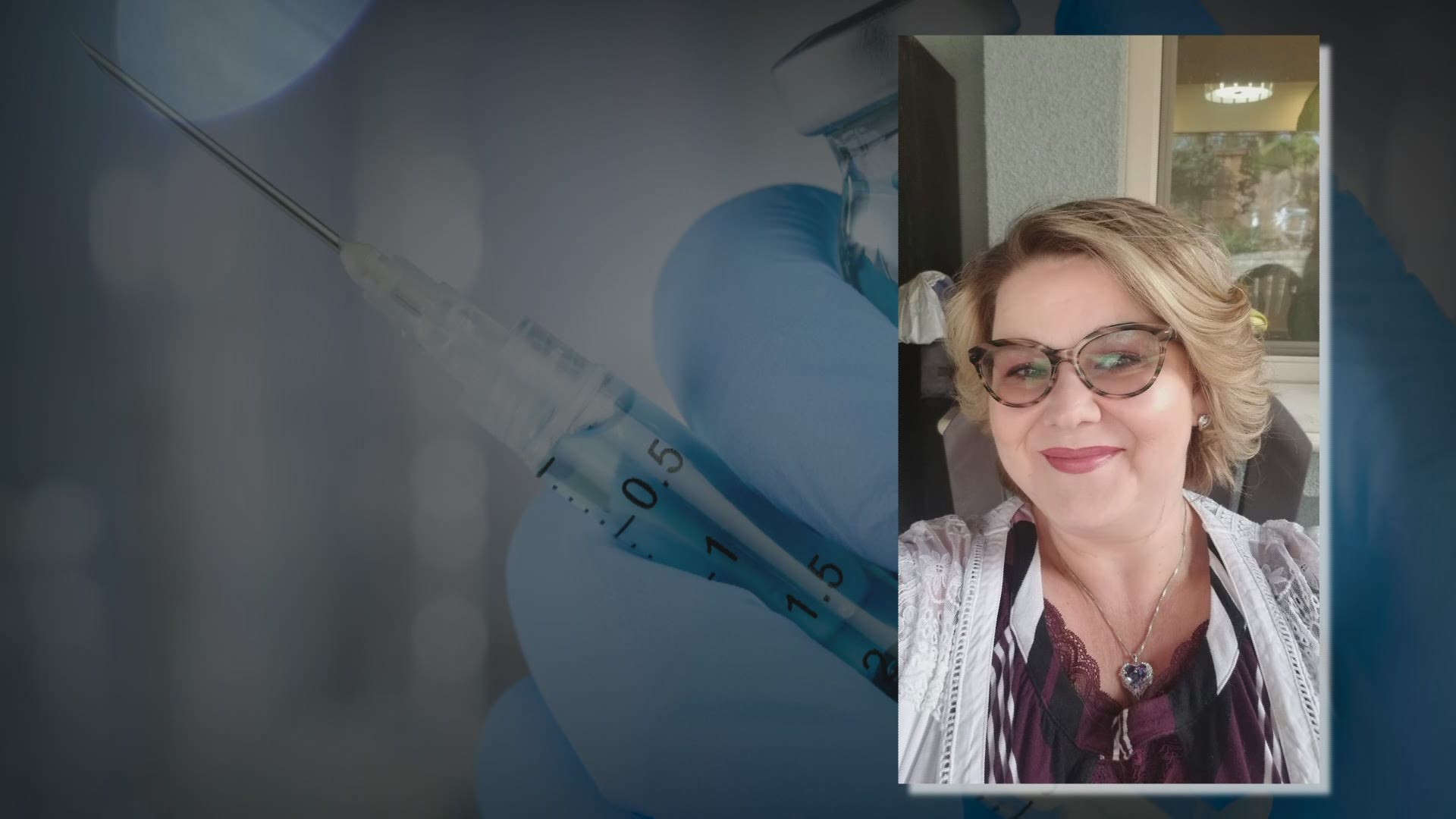ST. LOUIS — As thousands of Americans roll up their sleeves for a new vaccine, a system that was meant to give them confidence that they will be protected from serious side effects is changing its rules.
North Carolina nurse Kristi Simmonds felt safe going into her appointment to get the COVID-19 vaccine.
“I basically got it because that's kind of what we do as nurses,” said Simmonds.
Less than a week after her first dose, Simmonds said she started to experience occasional tremors.
“It almost feels like your whole body just seizes up and you can't do anything about it, you can't stop it,” she said.
Out of the more than 65 million doses of the COVID-19 vaccine administered so far, there have been almost 16,000 events reported to the Vaccine Adverse Event Reporting System, or VAERS, a data collection system used by the Centers for Disease Control and Prevention.
The most common reports are headaches, fatigue, and fever. In less than 3% of reports, vaccine recipients said they experienced tremors sometime after getting a COVID-19 vaccine. None of the events are confirmed to be caused by a vaccine when they are reported.
Dr. Michael Kinch, director of the Center for Drug Discovery at Washington University in St. Louis, said the 95% protection of the authorized vaccines far outweighs the risks.
“We've seen some injection site reactions, and there have been sporadic reports of other potential side effects, but we're been remarkably lucky, frankly, to get a vaccine that turns out to be this safe,” said Kinch.
For the people who aren’t lucky, there are government-run funds to compensate them.
“There are individuals who have vaccine injuries,” said Mike Milmoe, an attorney at The Law Offices of Leah V. Durant. Milmoe previously worked at the National Vaccine Injury Compensation Program, or VICP, run by the Health Resources and Services Administration.
“Congress set this program up to make sure that they were compensated quickly and fairly,” he said.
The VICP was set up in the 1980s to shield vaccine manufacturers from liability, and to make sure that anyone injured by a vaccine would be paid. It covers injury claims for sixteen routine vaccinations recommended by the CDC. For each vaccination, VICP describes the kinds of injuries or conditions it covers and when they must occur in order to be considered for compensation. Right now, the COVID-19 vaccine is not on the list.
“I think if there's enough evidence out there that the coronavirus vaccines should be routinely given to children, that's very likely to change,” said Milmoe.
The second fund available to help people who experience the worst side effects of a vaccine is the Countermeasures Injury Compensation Program, or CICP. It covers injuries caused by treatments and vaccines for pandemics like H1N1 and Ebola. COVID-19 vaccines are on the list of countermeasures that are included by CICP.
“That's a much more limited fund,” said Milmoe. “That is just people at [Health and Human Services] themselves deciding what the claim is worth or if it's worth paying at all. There's no judicial review. There's no special master. There's no judge you can appeal. The decision to the agency determination is final, and that really puts people in a real pickle.”
Milmoe added the CICP does not pay for attorney’s fees.
The other major difference in the programs is how many people they have helped.
The VICP has approved more than 7,800 vaccine injury claims, paying out more than $4.5 billion since the 1980s. There have already been 1,226 petitions for compensation filed with VICP so far in 2021.
The CICP has paid out just 29 claims in the last decade, totaling more than $6 million.
“While you cannot ever say an individual’s event is linked to particular, for example, a vaccination, you can't prove it nor can you disprove it,” said Kinch. “So that's why some of these laws have been set up, these funds have been created.”
There’s no guarantee that Simmonds qualifies for help from CICP or that the tremors she is experiencing are the direct result of the COVID-19 vaccine.
“I can't sit here and tell someone that the vaccine is not good for them, because they may take it and be fine. If you're willing to put yourself out there and something bad does happen, then somebody should have to help,” said Simmonds.
A controversial ruling under the Trump administration will soon remove coverage under VICP for shoulder injuries resulting from vaccine administration. Shoulder injury resulting from vaccine administration, also called SIRVA, makes up nearly 60% of all vaccine injury claims, according to Milmoe. He told the I-Team he believes the Biden administration may reverse that decision.
The first step in filing for compensation from CICP is to fill out a request for benefits form, available on the HRSA website, and send it to CICP within a year of receiving the vaccine or countermeasure. Survivors of a countermeasure recipient who died may file for death benefits.
Filing for compensation from VICP for injury from a routine vaccination, like the seasonal flu shot, starts with the injured person or their lawyer filing a petition with the US Court of Federal Claims.

